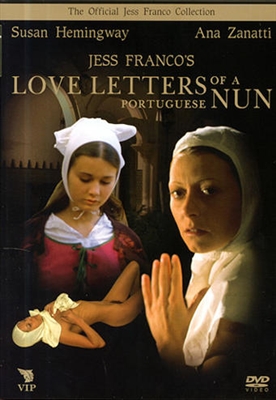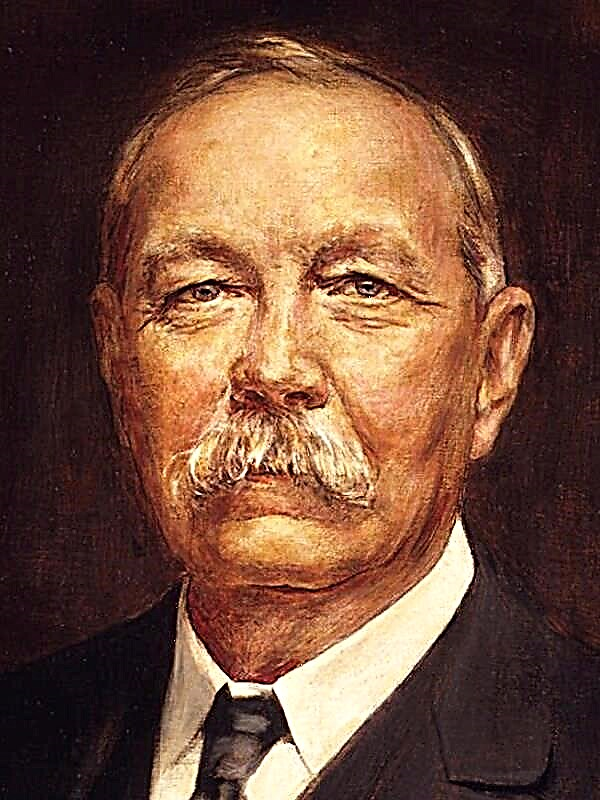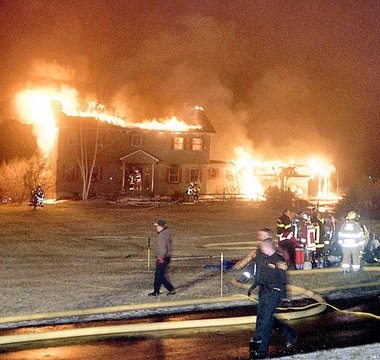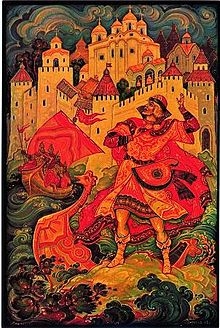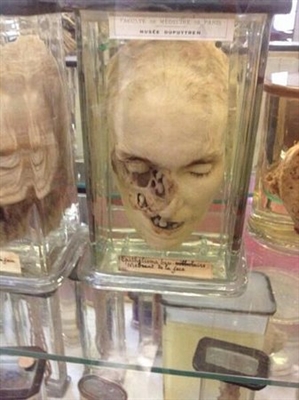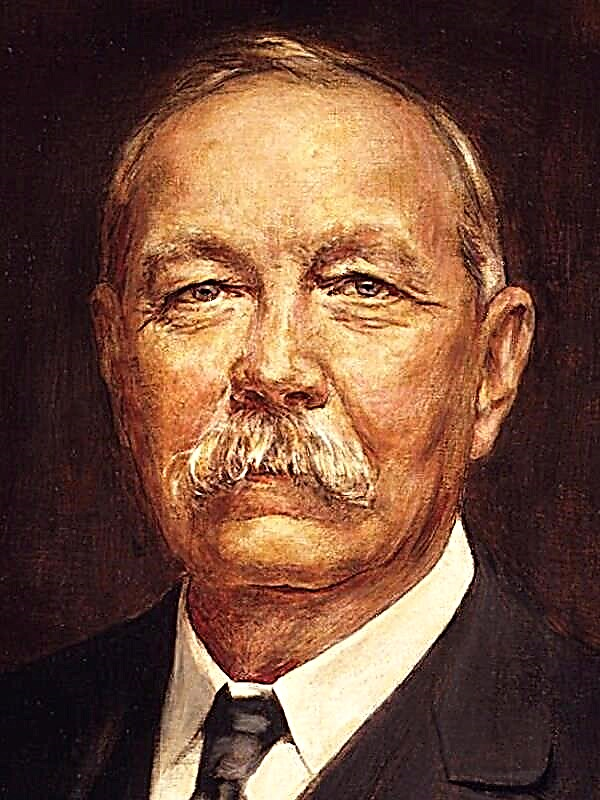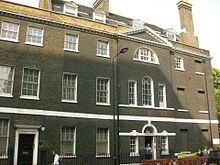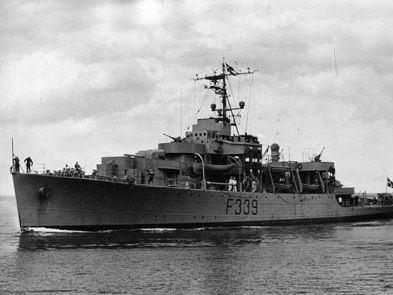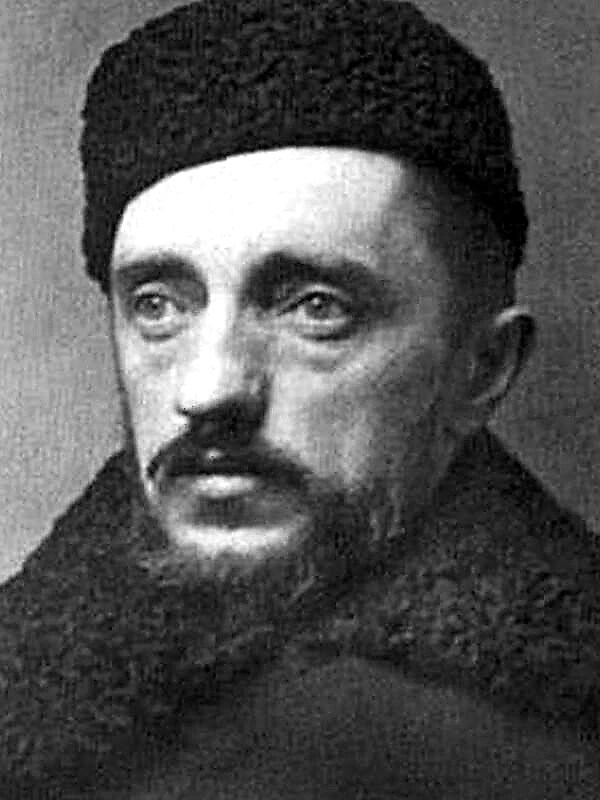Nezhdanov gets a place as a home teacher at the Sipyagins at a time when he really needs money, even more in a change of scenery. Now he can rest and gather his strength, but the main thing is that he “fell out of the custody of Petersburg friends”.
In Petersburg he lived in a dark room with an iron bed, a bookcase filled with books, and two unwashed windows. Once, a solid, overly self-confident gentleman, Boris Andreevich Sipyagin, a well-known official in Petersburg, appeared in this room. For the summer, he needs a teacher for his son, and the adjutant wing Prince G. (“it seems your relative”) recommended Aleksey Dmitrievich.
At the word "relative" Nezhdanov blushes instantly. Prince G. is one of his brothers who does not recognize him as illegitimate, but who pay him the annual "pension" at the behest of his late father. Alexei suffers all his life from the ambiguity of his position. For this reason, he is so painfully proud, so nervous and internally contradictory. Is it not for this reason that it is so lonely ?. Nezhdanov has plenty of reasons for embarrassment. In the smoky cell of the "princely relative" Sipyagin found his "Petersburg friends": Ostrodumov, Mashurin and Paklin. Sloppy figures, overweight and awkward; careless and old clothes; rough features, Ostrodumov still pocked with smallpox; loud voices and red large hands. True, in their appearance “something honest, and persistent, and hardworking” affected, but this could no longer correct the impression. Paklin was extremely small, unprepossessing man, who suffered greatly from this because of his passionate love for women. With a meager growth, he was still Strength (!) Sam-sonych (!). However, the students liked it with cheerful bile and cynical briskness (the Russian Mephistopheles, as he called it in response to the Russian name Hamlet Nezhdanov). Paklin was also hurt by the undisguised distrust of the revolutionaries.
Now Nezhdanov was resting from this all. He was no stranger to aesthetic, wrote poetry and carefully hid it to "be like everyone else."
The Sipyagins have a large stone house, with columns and a Greek pediment. Behind the house is a beautiful, well-kept old garden. The interior is imprinted with the latest, delicate taste: Valentina Mikhailovna fully shares not only beliefs, but also the addictions of her husband, a liberal figure and a humane landowner. She herself is tall and slim, her face recalls the Sistine Madonna. She was used to embarrassing her peace of mind, and not at all in order to have a special relationship with the object of her encouraging attention. Nezhdanov did not escape him, but quickly realized the absence, so to speak, of the content in her subtle invocations and the demonstration of the alleged lack of distance between them.
The tendency to subjugate and rule her is especially evident in relations with Marianne, the niece of her husband. Her father, a general, was convicted of embezzlement and sent to Siberia, then forgiven, returned, but died in extreme poverty. Soon her mother died, and Uncle Boris Andreevich sheltered Marianne. The girl lives in the position of a poor relative, gives lessons to the French son of the Sipyagins and is very burdened by her dependence on the powerful "aunt". She also suffers from the consciousness that others are aware of the dishonor of her family. "Aunt" knows how to casually say a word about this to friends. In general, she considers her a nihilist and atheist.
Marianne is not beautiful, but attractive, and her beautiful addition resembles a Florentine figurine of the XVIII century. In addition, "from her whole being breathed something strong and courageous, swift and passionate."
Is it any wonder that Nezhdanov sees in her a kindred spirit and turns his attention to her, which has not remained unanswered. But the brother of Valentina Mikhailovna Sergey Mikhailov Markelov, an ugly, gloomy and bile man, is passionately and hopelessly in love with Marianna. As a relative, he happens to be in a house where the main principles are freedom of opinion and tolerance, and, say, Nezhdanov and the extreme conservative Kallomiytsev, who do not hide their dislike for nihilists and reforms, meet at the table.
It suddenly turns out that Markelov came for a meeting with Nezhdanov, to whom he brought a letter from "himself" Vasily Nikolayevich, recommending that they both interact "in the dissemination of known rules." But it’s better to talk in Markelov’s estate, otherwise the sisters and walls in the house have ears.
Sergei Mikhailovich Nezhdanov will have a surprise. In the living room, under the light of a kerosene lamp, they drink beer and smoke Ostrodumov and Mashurin. Until four in the morning there is talk about who you could rely on. Markelov believes that it is necessary to attract the "mechanic-manager" of the local paper spinning mill Solomin and the merchant from the schismatics Golushkin. In his room, Nezhdanov again feels terrible mental fatigue. Again it is said a lot that one must act, that it is time to start, and why, no one knows. His “Petersburg friends” are limited, though honest and strong. However, in the morning he noticed Markelov’s face showing traces of the same mental fatigue of an unhappy, unfortunate person.
Meanwhile, after the refusal to Markelov, Marianne and Nezhdanov increasingly feel mutual sympathy. Alexey Dmitrievich finds it even possible to tell the girl about the letter of Vasily Nikolaevich. Valentina Mikhailovna understands that the young man completely turned away from her and that Marianne was to blame: “We need to take action.” And young people are already switching to "you", and soon follows the explanation. This was not a secret for Ms. Sipyagina. She overheard it at the door.
Solomin, to whom Nezhdanov and Markelov set off, once worked for two years in England and knows modern production perfectly. He is skeptical of the revolution in Russia (people are not ready). He started a school and a hospital at the factory. This is his specific case. In general, there are two ways to wait: to wait and do nothing, and to wait and move things forward. He chose the second.
On the way to Golushkin they come across Paklin and calls them into an “oasis”, to the old people - the spouses Fimushka and Fomushka, who continue to live as if in the courtyard of the 18th century In what way of life they were born, raised and married, in that they remained. “Still water, but not rotten,” he says. There is also a palace, there is an old servant Kalliopych, confident that the Turks have a will. There is a dwarf puff, for fun.
Dinner set Galushkin "with force." In a drunken courage, the merchant donates large sums of money: “Remember Capiton!”
On the way back, Markelov accuses Nezhdanov of disbelief in the case and cooling him. This is not without reason, but the subtext is different and is dictated by jealousy. He knows everything: with whom the handsome Nezhdanov spoke, and with whom he was in the room after ten in the evening. (Markelov received a note from his sister and really knew everything.) Only here it is not merit, but the well-known happiness of all illegitimate, all of you ... you!
Nezhdanov promises to send seconds on his return. But Markelov has come to his senses and begs to forgive: he is unhappy, "in his youth, he" deceived one. " Here is a portrait of Marianne, once painted by himself, now passes to the winner. Nezhdanov suddenly feels that he has no right to take it. Everything said and done seemed a lie. However, barely seeing the roof of the Sipyaginsky house, he tells himself that he loves Marianne.
On the same day, a date took place. Marianne is interested in everything: and when will it begin, finally; and what is Solomin himself? and what is Vasily Nikolaevich. Nezhdanov notes to himself that his answers are not exactly what he really thinks. However, when Marianne says: you need to run, he exclaims that he will go with her to the ends of the world.
The Sipyagins, meanwhile, are trying to lure Solomin to themselves. He accepted the invitation to visit them and inspect the factory, but refused to go. The nobleman’s factory business will never go, these are strangers. Yes, and the landowning land ownership itself has no future. The merchant will take up hands and land. Marianna, listening to the words of Solomin, is more and more imbued with confidence in the solidity of a person who cannot lie or boast, who will not betray, but will understand and support. She finds herself comparing him with Nezhdanov, and not in favor of the latter. So Solomin immediately made the thought of leaving both the Sipyagins a reality, offering refuge in his factory.
And now the first step towards the people has been taken. They are in a factory in an inconspicuous outbuilding. Pavel, a devotee to Solomin, and his wife Tatyana, who are perplexed: young people live in different rooms, do they love each other? They are going to talk and read together. Including poems by Alexei, which Marianne evaluates quite severely. Nezhdanov is offended: “But you buried them - and by the way!”
The day comes to "go to the people." Nezhdanov, in a caftan, boots, a cap with a broken visor. His trial exit does not last long: the men are deafly hostile or do not understand what they mean, although they are unhappy with life. In a letter to a friend Silin, Alexei says that the time to act is unlikely when it comes. He also doubts his right to finally attach the life of Marianne to her own, to the half-dead being. And how he “goes to the people” is impossible to imagine anything more stupid. Or take up an ax. Only a soldier instantly swells you out of a gun. It’s better to kill yourself. The people are sleeping, and it is not at all what we think that wakes them up.
Soon a message arrives: uneasy in a neighboring county - it must be Markelov’s work. We need to go find out, help. Nezhdanov is sent, in his common clothes. In his absence, Mashurina appears: is everything ready? Yes, she still has a letter for Nezhdanov. But where is it? She turned away and quietly put a piece of paper in her mouth. No, I probably dropped it. Say to be careful.
Finally Pavel returned with Nezhdanov, from whom he was overwhelmed by fumes and who barely kept his feet. Caught in a crowd of men, he began to oratory with fervor, but some guy dragged him into the tavern: a dry spoon is tearing his mouth. Paul barely rescued him and brought home already drunk.
Suddenly, Paklin appeared with the news: Markelov was seized by the peasants, and the clerk Golushkin gave the owner, and he gives frank testimony. The police are about to rush to the factory. He will go to Sipyagin - to ask for Markelov. (There is also a secret calculation that a dignitary will appreciate his service.)
The next morning, a final explanation takes place. It is clear to Nezhdanov: Marianne needs a different person, not like him, but like Solomin ... or Solomin himself. There are two people in him - and one does not allow the other to live. It’s better to stop living both. The latest attempt at propaganda proved Nezhdanov his failure. He no longer believes in the affair that connects him with Marianne. She believes and will devote her whole life to the cause. Politics united them, now this very foundation of their union has collapsed. “But there is no love between them.”
Solomin, meanwhile, is rushing away: the police will appear soon. And everything is ready for the wedding, as agreed. When Marianne sets off to pack, Nezhdanov, left alone, puts two sealed pieces of paper on the table, enters Marianne’s room and, kissing her bed at the feet, leaves for the factory yard. At the old apple tree, he stops and, looking around, shoots himself in the heart.
While still alive, he is transferred to a room where, before his death, he tries to join the hands of Marianne and Solomin. One letter is addressed to Solomin and Marianne, where he entrusts the bride to Solomin, as if “connecting them with his afterlife”, and sends greetings to Mashurina.
Police arriving at the factory found only the body of Nezhdanov. Solomin and Marianna left ahead of time and two days later fulfilled the will of Nezhdanov - they got married.
Markelov was tried, Ostrodumov was killed by a tradesman, whom he persuaded to rebellion. Mashurina disappeared. Golushkina was subjected to easy punishment for “sincere repentance”. Solomin, for lack of evidence, was left alone. There was no talk of Marianne either: Sipyagin talked with the governor. Paklin, who did a service to the investigation (completely involuntary: relying on the honor of Sipyagin, named where Nezhdanov and Marianna were hiding), were released.
In the winter of 1870 in St. Petersburg he met Mashurina. In response to the appeal, she responded in Italian with a surprisingly clean Russian accent that she was the Countess di Santo Fiume. Then she nevertheless went to Paklin, drank some tea from him and told how some kind of uniform showed interest in her at the border, and she said in Russian: "Untie you from me." He fell behind.
“Russian Mephistopheles” tells the “contess” about Solomin, who is the real future of Russia: “a man with an ideal - and without a phrase, educated - and from the people” ... Gathering to leave, Mashurina asks for something in memory of Nezhdanov and, having received the photograph, he leaves without answering the question of Sila Samsonovich, who now runs it: all Vasily Nikolaevich, or Sidor Sidorych, or what nameless? Already from behind the threshold she said: “Maybe a nameless one!”
"Nameless Russia!" - repeated, standing in front of the closed door Paklin.

